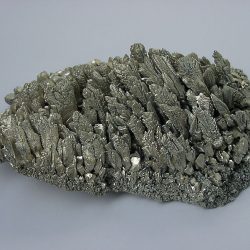About 80% of adults are vitamin D deficient. However, it is difficult to determine all the factors that can alter our vitamin D levels. When sunlight comes into contact with the skin, the body starts to make vitamin D. In addition, although some foods such as oily fish contain vitamin D, others are simply fortified with the vitamin. Despite this, many people choose to take supplements to make up for any deficiency. We all need vitamin D AND sunscreen on a daily basis. It is possible to get both, without having to suffer from nutritional deficiency or severe sunburn!
How is vitamin D made?
Everyone needs them. And for good reason! It stimulates bone growth and protects us from diseases like osteoporosis. Vitamin D also helps to strengthen our immune system. When the skin is exposed to the sun’s rays, it starts to produce vitamin D. Ultraviolet B rays interact with a protein called 7-DHC in the epidermis, converting it into vitamin D3: the active form of vitamin D. Unfortunately, too many of us still think that using sunscreen could lead to vitamin D deficiency. As a result, many people choose to expose themselves to the sun without bothering to use adequate sun protection!
What are the properties of this vitamin?
Because of its regulating effect on calcium levels, vitamin D contributes to the strength of our bones. This makes it an essential vitamin for bone health. When people are deficient in vitamin D, they may experience symptoms such as bone and muscle pain or muscle weakness. In severe cases, by reducing the absorption of calcium, vitamin D deficiency can lead to slower growth, reduced bone strength and weakened bone structure. This can lead to an increased risk of skeletal deformities, fractures and osteoporosis. Scientific studies have never proven that regular use of sunscreen can lead to vitamin deficiency. In fact, people who use sunscreen daily have normal levels of vitamin D.
Should we expose ourselves to the sun?
Sunscreen has many benefits. Indeed, studies have shown that regular use of broad spectrum sunscreen can reduce the risk of developing squamous cell carcinoma by about 40%, melanoma by 50% and premature skin ageing by 24%. At the molecular level, it has been shown that sunlight can damage the skin’s DNA. This leads to genetic mutations, which are responsible for skin cancer. In conclusion, exposure to the sun without adequate protection can expose you to a number of serious skin conditions. In fact, regular use of sunscreen can go a long way to avoiding all these problems.
Does sunscreen prevent the body from synthesising vitamin D?
The question of the interaction between sunscreens and the synthesis of vitamin D in our bodies is essential for assessing the benefits and drawbacks of using these protective products. But what is the real impact of sunscreens on vitamin D production?
How sun creams work
Anthélios sun creams, for example, are products that help protect our skin from the harmful effects of the sun’s ultraviolet (UV) rays. They act by absorbing, reflecting or diffusing UV rays, limiting their penetration into the skin. Sun creams are classified according to their protection index (PI), which indicates their ability to filter out UVB rays.
The different types of sun cream
There are several types of sunscreen, classified according to their composition and mode of action. The main ones are chemical sunscreens, which contain organic filters that absorb UV rays, and mineral sunscreens, which contain inorganic filters such as titanium dioxide or zinc oxide, which reflect and diffuse UV rays. Each type of sun cream has its advantages and disadvantages, and the choice will depend on each individual’s needs and preferences.
The impact of sunscreens on vitamin D synthesis
The role of sun creams in protecting our skin from UV rays is undeniable. However, it is crucial to understand their impact on our body’s synthesis of vitamin D. In this section of the article, we will examine the protective effects of sunscreens, as well as their possible undesirable effects on vitamin D production, in order to gain a better understanding of the interaction between these products and our overall health.
The protective effects of sun creams
By filtering out UVB rays, sun creams protect our skin from the harmful effects of the sun, such as sunburn, premature ageing and skin cancer. What’s more, they help prevent the appearance of pigmentation spots and the breakdown of collagen, ensuring healthier, younger-looking skin.
Finding the right balance between sun protection and vitamin D
Faced with the challenge of protecting our skin from the dangers of the sun while ensuring that we synthesise enough vitamin D, it’s essential to find the right balance between sun protection and exposure to UV rays. In this part of the article, we’ll explore the different ways of choosing sun cream and adjusting sun exposure times to ensure optimum protection without compromising our body’s production of vitamin D.
How to choose the right sun cream
It’s important to find the right balance between sun protection and vitamin D synthesis. To do this, you need to choose a sun cream that is suited to your skin type, its protection factor and its mode of action. For example, fair skin will need more protection than dark skin. It is also advisable to choose broad-spectrum sun creams, which protect against both UVA and UVB rays.
Time spent in the sun
The amount of time spent in the sun is also a factor to be taken into account in maintaining a good level of vitamin D while protecting yourself from the harmful effects of the sun. In general, it is advisable to expose yourself to the sun for short periods, without sun cream, to allow the skin to synthesise enough vitamin D. Exposure for 15 to 30 minutes, 2 or 3 times a week, is often sufficient for most people.
Tips for maintaining a good level of vitamin D
Maintaining an optimal level of vitamin D in our bodies is crucial for good bone, dental and immune health. To achieve this, it is important to strike a balance between sun exposure, diet and, if necessary, supplementation. In this section, we’ll give you some practical advice on how to optimise your vitamin D intake while protecting your skin from the harmful effects of the sun.
Diet and supplements
As well as exposure to the sun, it’s important to eat a diet rich in vitamin D and, if necessary, take vitamin supplements. Foods rich in vitamin D include oily fish (salmon, mackerel, sardines), eggs, vitamin D-enriched dairy products and mushrooms. If you are having difficulty obtaining enough vitamin D through diet and sun exposure, talk to your doctor or pharmacist, who will be able to advise you on the appropriate supplement.
Controlled sun exposure
It’s essential to manage your exposure to the sun properly to maintain a good level of vitamin D without risking the harmful effects of UV rays. Avoid exposure to the sun at peak times, generally between 11am and 4pm, and wear protective clothing and sunglasses. When you go out in the sun to synthesise vitamin D, remember to apply sun cream after the first few minutes of exposure, to prevent sunburn and other skin problems.
FAQ
- Do sun creams really prevent the synthesis of vitamin D? Sun creams can reduce our skin’s ability to produce vitamin D by filtering out UVB rays. However, moderate exposure to the sun without sun cream, combined with a diet rich in vitamin D, generally helps to maintain adequate levels of this vitamin.
- How much sun exposure is needed to synthesise enough vitamin D? For most people, 15 to 30 minutes’ exposure to the sun, 2 or 3 times a week, is enough to produce adequate levels of vitamin D. It is important to avoid exposure at peak times, generally between 11am and 4pm.
- What type of sun cream is best for a good balance between sun protection and vitamin D synthesis? Choose a broad-spectrum sun cream that protects against both UVA and UVB rays, with a sun protection factor suited to your skin type. Mineral sunscreens based on titanium dioxide or zinc oxide are also an interesting option, as they reflect and diffuse UV rays.
Sources:
https://pubmed.ncbi.nlm.nih.gov/30945275/
https://www.ncbi.nlm.nih.gov/pmc/articles/PMC6899926/





